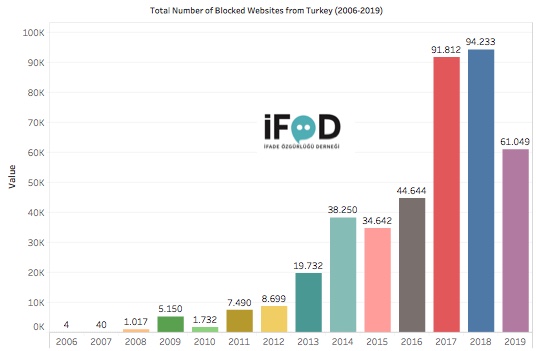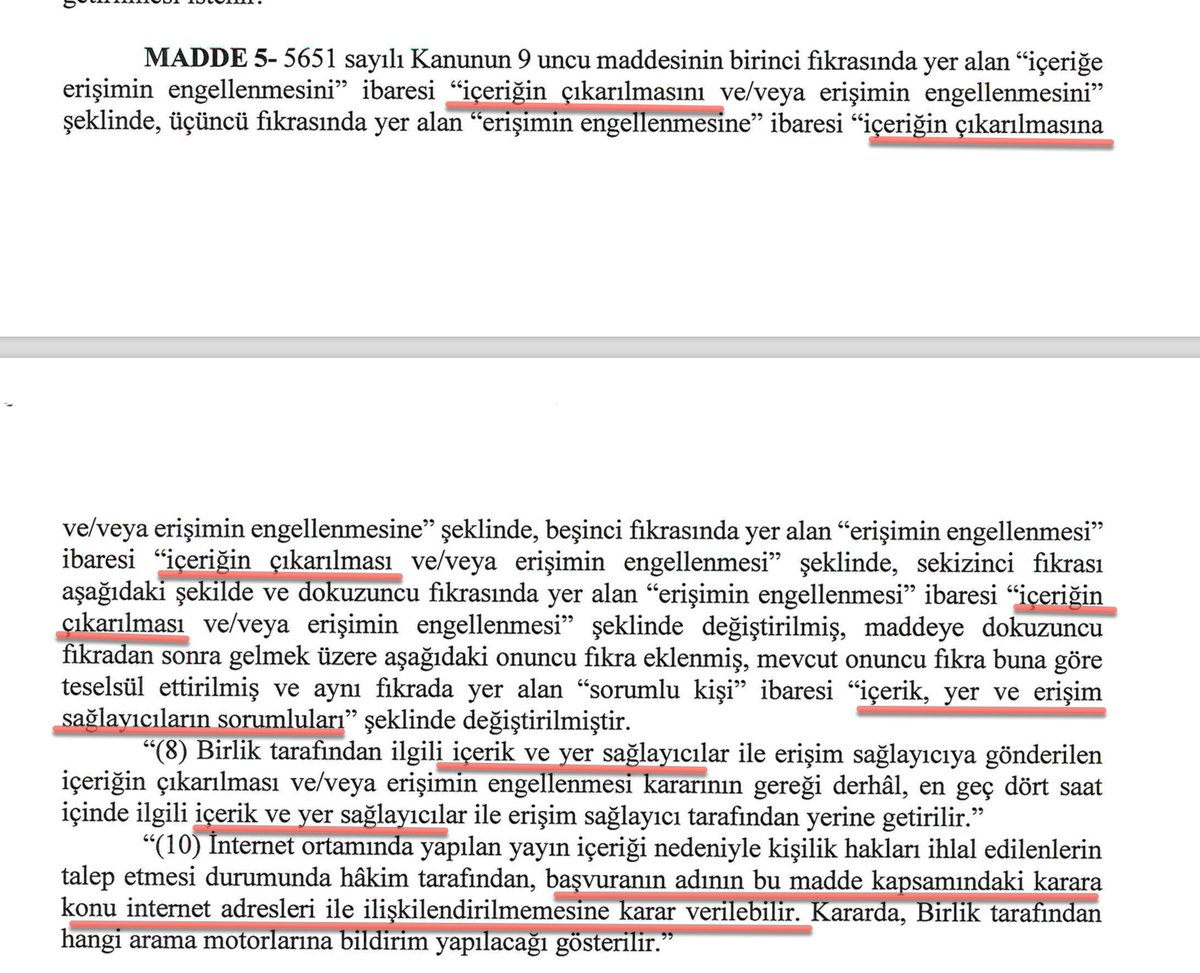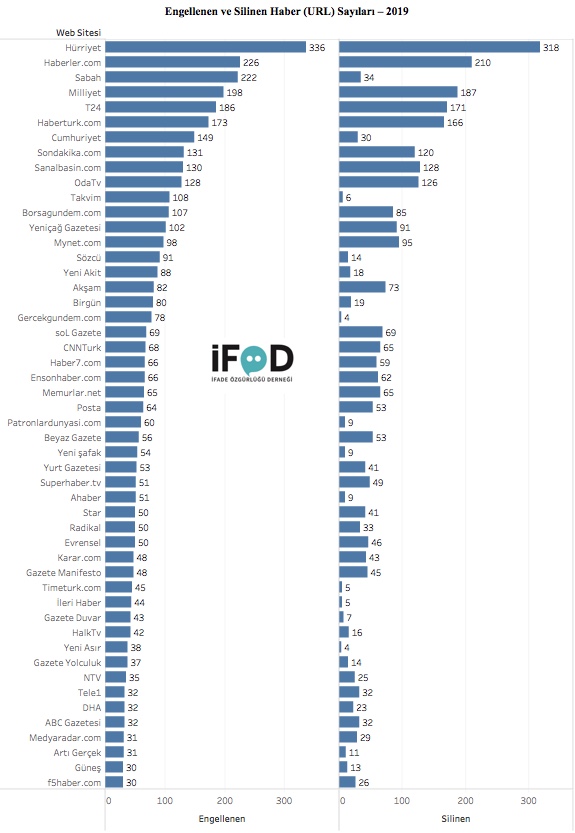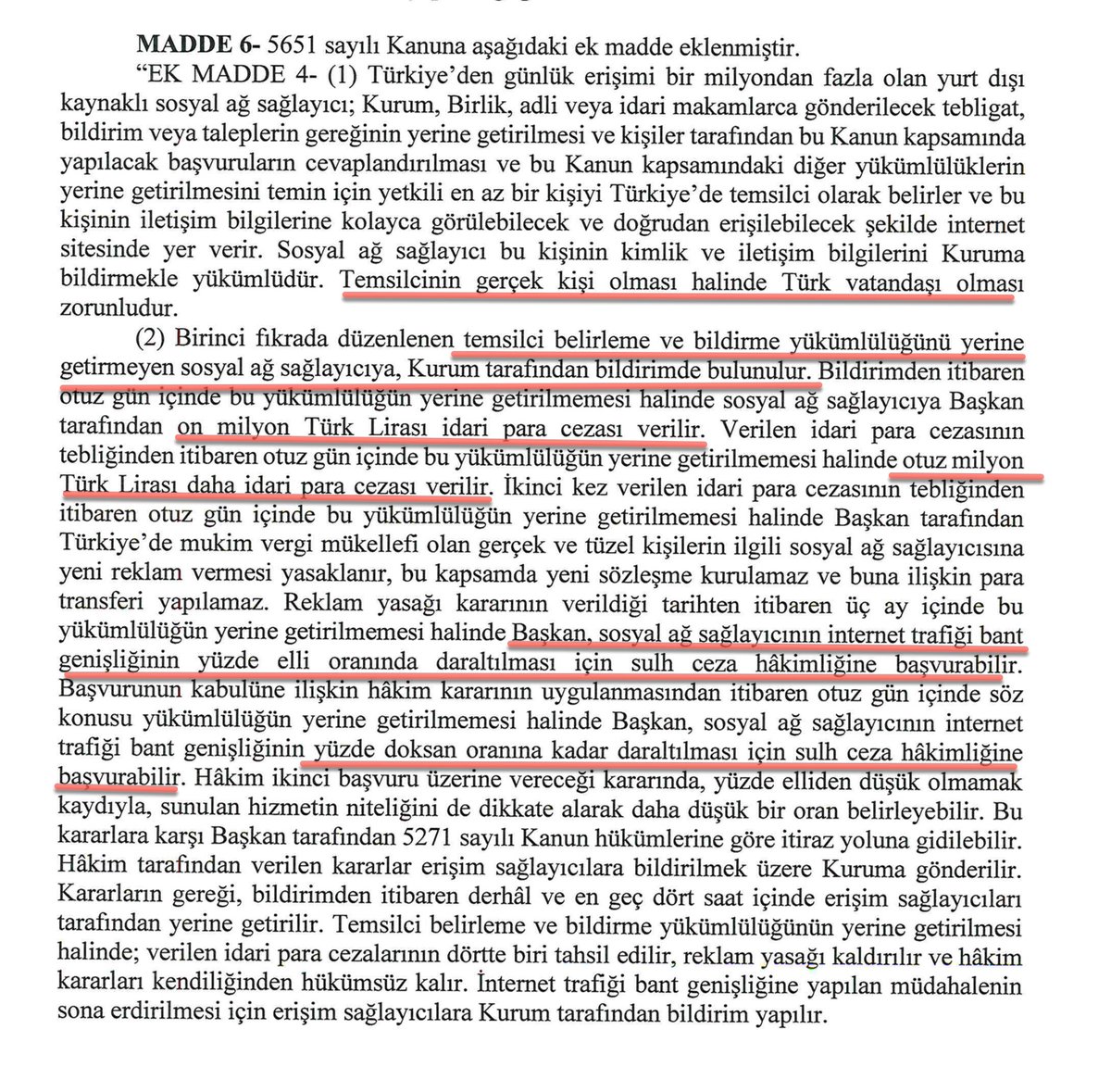Turkish Government today announced a new draft amendment law concerining the regulation of the Internet and social media platforms. I will explain in this thread what is currently proposed as well as its context and the impact of the proposals on freedom of expression.
First of all, access to a total of 408.494 websites is blocked from Turkey by the end of 2019. Moreover, access to 130.000 URLs, 7.000 Twitter accounts, 40.000 tweets, 10.000 YouTube videos, and 6.200 Facebook content is also blocked from Turkey as of end of 2019.
We published the details of the blocked websites and content from Turkey in our EngelliWeb 2019: An Iceberg of Unseen Internet Censorship in Turkey report a few weeks ago: Turkish version is at https://engelliweb.ifade.org.tr/ ">https://engelliweb.ifade.org.tr/">... and the English version will be published very soon.
The current Turkish proposals are compared to that exists in Germany (NetzDG). However, the German model is rather different and does not end up blocking access to Twitter, YouTube and Wikipedia platforms like Turkey did in the past.
Furthermore, the German NetzDG law does not target news websites while the Turkish current provisions lead into the total blocking and censorship of news websites such as http://Sendika.Org"> http://Sendika.Org , JinNews, OdaTV, Independet Turkey and http://Ozguruz.org"> http://Ozguruz.org .
In Turkey, a considerable number of entities are provided with access blocking authority and this is not only limited to the courts and the judges. E.g. the Association of Access Providers, Medicines and Medical Devices Agency, the Capital Markets Board, Jockey Club of Turkey+
Directorate General of National Lottery Administration, Directorate of Spor Toto Organization, the High Board of Religious Affairs and the Radio and Television Supreme Council are among the bodies provided with access blocking authority.
While there is widespread blocking activity ongoing in Turkey, democratic institutions including the courts of law is not functioning. All the politically motivated requests to block access to websites and content are accepted by the judges while almost all appeals are rejected.
Once the appeals are rejected, the only legal option is to apply to the Constitutional Court which then takes at least 2.5 years to decide (Wikipedia) but on average takes 5 years to decide in relation to blocking related applications (e.g. Birgün, Cumhuriyet, Sendika, etc).
Therefore, before we even start talking about today& #39;s proposals, there already exists a one sided mechanism with the only intention to deploy widespread access blocking decisions to critical content, news articles as well as social media content.
The judges also constantly ignore the Constitutional Court& #39;s decisions involving a principled approach to Internet blocking while issuing their blocking decisions. We assessed 6200 blocking decisions issued in 2019 and only 69 referred to Constitutional Court decisions.
So, when I assess today& #39;s proposals, the first thing that is noticed is the fact that in addition to access blocking, the judges will be empowered with "removal of content" sanction. This will lead into massive removal of government critical news and content.
Believe me this is NOT what is meant by "right to be forgotten". In Turkey, it is the intention of the Government to clean its past from critical content including news coverage of corruption allegations as well as all sort of irregularities.
In our 2019 @engelliweb report, we published a league table involving blocked (engellenen) and removed (silinen) news articles by media organisations. If today& #39;s draft becomes law, it will be compulsory to remove blocked content.
It should also be noted that these blocking decisions are issued by the judges upon request while the content providers are not present as a precautionary measure. In almost all cases, there is NO further trial establishing whether the "content" was illegal or unlawful.
The draft also requires social media platform operators to establish local offices in Turkey. Otherwise they will face substantial fines and more worryingly their Internet bandwith will be restricted 50-90% in case of refusal to come to Turkey.
On the other hand, if they do come to Turkey, the social media platform operators will be compelled to keep their "users& #39; data" locally in Turkey which will then lead into relatively easy access to such data by the Turkish authorities.
Similarly, the social media platform operators will be compelled to comply with every single decision they receive from the courts in Turkey. Currently, the likes of Twitter, Facebook and Google did not comply with every single request received from the Turkish authorities.
Twitter did not comply with blocking decisions involving @candundaradasi (a journalist) and @barbarosansalfn (an activist) when received access blocking decisions. However, if the company opens an office in Turkey, then it will be compelled to do so: https://twitter.com/candundaradasi/status/1285331119601221632">https://twitter.com/candundar...
If the social media platform operators do not remove the content or close down the accounts mentioned in the blocking decisions, they will be responsible for any financial damages and could face hundreds of court cases in Turkey.
Overall, this is a rushed draft law & will swiftly go through the Turkish Parliament. It has not been sent to any stake-holder in Turkey for prior comments nor it has been sent to the social media platform operators. Even the main opposition parties saw the draft law only today.
Going back to the German NetzDG law, the Turkish version has nothing to do with the German version. Needless to say the NetzDG is subject to serious criticism, it leads into over-removal and privatised censorship and there is no indication that it has been successful so far.
I must say that the only achivement the German NetzDG law had was its inpiration for authoritarian regimes around the world such as Turkey to restrict more speech. Well done @GermanyDiplo, you must be so proud!
My recommendation to the social media platform operators such as Twitter, Facebook and Google is to categorically reject the new proposals and NOT to come to Turkey to become the long arm of the Turkish law enforcement regime.

 Read on Twitter
Read on Twitter





